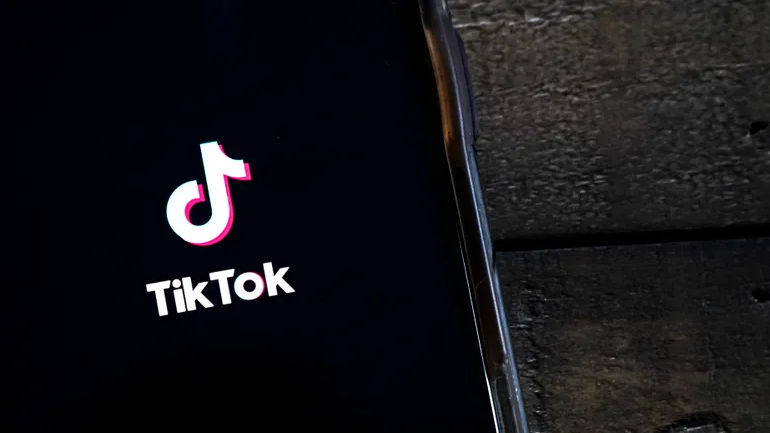
US Senate Passes TikTok Sell-off Proposal: What Comes Next?

The US Senate has approved a bill calling for TikTok to be banned or sold, awaiting President Joe Biden's signature. Learn more about the implications and potential outcomes of this decision.
"Sociable" is a new commentary by industry expert Andrew Hutchinson from Social Media Today.
Unfortunately for TikTok fans, the U.S. Senate has passed a bill requiring the app to be sold to a U.S. owner or face a ban in the country.
The bill, first introduced last month and given the green light by the House of Representatives, was recently expanded to include a wider range of foreign aid initiatives. This adjustment was made to speed up the process of getting the bill to be voted on in the Senate. Today, the Senate cast their votes on this revised proposal, which now encompasses military aid for Ukraine and Israel, as well as humanitarian aid for Gaza.
In the end, the bill received a favorable vote of 79 to 18.
The TikTok ban will now be passed on to U.S. President Joe Biden for his approval. Biden has already mentioned that he will sign the bill if it reaches his desk. This is expected to happen tomorrow. This means that TikTok will have to be sold to move away from its Chinese ownership and reduce the risk of the app being used for propaganda by the Chinese Communist Party (CCP).
It seems like the main worry for U.S. officials is the transfer of U.S. user data back to China. Even though TikTok claims to be separate from China, reports suggest that the transfer is still happening. The company's promises, including a billion-dollar plan to move all U.S. user data to an American data center, were not enough to alleviate concerns.
As a result, TikTok will now have to go through a sell-off process.
It's hard to fully understand the risks in this situation because while Senators have been briefed by cybersecurity experts, the public has not been given much information about how TikTok could be used by China to influence.
The main goal of the bill is to address concerns about foreign adversaries influencing the American public. With tensions rising between the U.S. and China, the key issue is that TikTok could potentially be used as a propaganda tool to sway U.S. voters. This concern is based on the history of Chinese influence operations and TikTok's connections to the CCP.
In China, TikTok's parent company ByteDance collaborates closely with the Chinese government on content controls and regulations. Although these controls do not apply to TikTok, as the platform operates outside of China, the history of Chinese influence operations in other countries suggests that TikTok could potentially be targeted in the future.
For instance, in 2022, Google disrupted over 50,000 instances of a Chinese influence program known as "Dragonbridge" on platforms like YouTube, Blogger, and AdSense. Similarly, Meta has identified numerous cases of Chinese influence operations, having removed nearly 5,000 Facebook profiles associated with such programs in Q3 of the previous year. Recently, Microsoft also raised concerns about Chinese-based groups attempting to influence voters in various countries, including the U.S., through coordinated social media activities.
Considering all of this, it appears that TikTok may indeed present a threat. U.S. Senators have come deemed it too risky to allow TikTok to continue operating in the U.S. What comes next?
If Biden follows through on his promise to sign the bill, ByteDance will have 9 months to sell TikTok to a U.S.-based owner. If they fail to do so, the app will have to be removed from the region. There is a possibility of a 30-day extension if ByteDance appeals, meaning TikTok may still be available for at least another year.
It might seem like the parties involved would come to an agreement to keep the platform running during this time. However, a complication is that the Chinese government has vowed to oppose the forced sell-off. They would rather see TikTok banned than give in to what they view as an overreach.
This political conflict could potentially result in TikTok being banned permanently. On the other hand, it could also be sold to a buyer who is interested in keeping it running independently from its Chinese owners.
Could TikTok continue operating with algorithms owned by ByteDance? Would it still be a successful platform without them?
As Biden is expected to sign off soon, there will be many questions raised in the following weeks.
Editor's P/S:
The U.S. Senate's move to ban TikTok over concerns of Chinese influence is a significant development that raises important questions about the role of foreign-owned social media platforms in American society. While the potential risks of TikTok's data collection practices and ties to the Chinese government are certainly concerning, it is crucial to consider the implications of such a ban on free speech and the availability of popular platforms.
Furthermore, the article highlights the complex geopolitical tensions between the U.S. and China, with TikTok becoming a pawn in this larger struggle. The Chinese government's vow to oppose the forced sell-off could lead to a permanent ban on the app, depriving millions of Americans of a popular social media platform. It is essential for policymakers to strike a balance between addressing legitimate concerns about foreign influence and protecting the rights of individuals to access information and communicate freely.













